Table of contents
Male infertility is much more common than you’d think. An estimated 7% of men worldwide deal with fertility problems. In Canada, roughly 16% (1 in 6 couples) have infertility issues, with the problem stemming from the man 3 times out of 10. One of the most common causes of male infertility is sperm health. In this blog, we’ll be going through the meaning of sperm health, the causes of poor sperm health, and ways to boost sperm health naturally.
What is sperm health?
Your sperm health is primarily composed of 3 things:
- Sperm count: Anything less than 15 million sperm per mL is considered to be a low sperm count. The ideal sperm concentration should be between 15 million to 259 million per mL to give you a greater shot at pregnancy.
- Sperm motility: The sperm's ability to move efficiently through a woman's reproductive tract. If a sperm moves fast, it can effectively navigate through a woman's reproductive tract and fertilize the egg. Sperm motility above 40% is considered to be normal. The higher the motility, the faster the sperm reaches the egg.
- Sperm shape: The size and shape of sperm impact how the sperm can penetrate through the outer layers of a woman’s egg. Healthy sperm have rounded heads with long tails.
What causes male infertility?
The most common contributors to male infertility include:
- Hormonal imbalances
- STI and other genitalia infections
- Exposure to harmful chemicals
- Injury to the testicles
- Undescended testicles
- Prior surgeries
- Difficulties with ejaculation and erectile dysfunction
- Cancer
- Varicocele
- Defects and blockages in the tubes that transport sperm
- Anti-sperm antibodies
- Cystic fibrosis
Although these are the most well-known reasons for male infertility, having male infertility doesn’t necessarily equate to having any of these illnesses.
What are the natural ways to boost sperm health?
1-Take the right supplements.Try to incorporate these fertility-boosting supplements into your diet:
- Vitamin B12 is essential for the production of sperm and DNA.
- Vitamin C improves and boosts sperm health.
- According to a Dutch study conducted in 2002, folic acid with zinc increase sperm count by up to 74%.
- Vitamin E can improve sperm motility by helping the sperm membrane remain stronger for longer.
- Zinc is an essential micronutrient to boost testosterone levels.
- Coenzyme Q10 protects sperm from oxidative stress and other degradation.
- L-carnitine increases sperm motility.
Shorten your search for the right supplement by checking out our all-natural male fertility-boosting supplement, MedFertil. It's a medley of micronutrients that do wonders for male fertility.
2. Maintain a healthy weight & exercise.
Several studies have linked obesity to low sperm count. A 2012 study conducted at the Harvard School of Public Health concluded that overweight men were 11 times more likely to have a low sperm count and 39% more likely to have no sperm in their ejaculate. Obese men were 42% more likely to have a low sperm count than a normal-weighted person and 81% more likely to produce less sperm.
Try to include more physical activities in your day by going on walks, gardening, weight training, or even doing yoga. Don’t overdo it, though! Research has shown that men who exercise three times a week for at least one hour have an increased sperm count. Over-exercising can lower your testosterone levels so be sure to find your balance.
3.Incorporate healthy food into your diet.
Fill your diet with antioxidant-rich food. Increase consumption of green and leafy vegetables, nuts (especially walnuts), seafood, and omega-3-rich food to improve sperm motility, quality, vitality, and morphology.
Limit alcohol and caffeine consumption. Limit intake of processed food, trans fat, high-fat dairy, estrogen-promoting food, and soy products.
4. Keep everything cool.
Like most mammals, human sperm is also temperature dependent. A 1998 study found that an artificial increase in scrotal and testicular temperature led to a decline in sperm output and sperm quality in fertile men.
Wear loose underwear, don’t go into saunas or hot tubs, keep electronics (especially laptops) away from your lap, try to move regularly, and avoid riding a bike in hot weather.
5. Cleanse your environment of toxins.
Try to minimize or eliminate the presence of:
- Heavy metals like cadmium, lead, mercury, and arsenic because they can reduce sperm count, concentration, motility, and morphology.
- BPA & Phthalates plastic because they can reduce sperm count, concentration, and motility, and increase DNA damage as well.
- Pesticides and herbicides because they can reduce spermatogenesis, and lead to low sperm motility. They can also have an estrogenic effect, and decrease testosterone levels.
Also, try to avoid industrial areas with high levels of air pollution.
6. Quit smoking and limit alcohol.

Smoking is proven to hamper male fertility. According to multiple studies, heavy smoking has been linked to a consistently low sperm count, higher sperm motility, and lower semen volume.
Although occasional drinking may not have a profoundly negative impact, regular heavy drinking does. Some studies on long-term, heavy alcoholics have reported reduced gonadotropin release, testicular atrophy, and decreased testosterone and sperm production.
Try to set a limit on drinking, and have alcohol-free days in your week.
7. Consume fertility-boosting superfoods.
- Maca: A study found that regular consumption of Maca tablets resulted in increased seminal volume, motile sperm count, and sperm motility.
- Fenugreek: Fenugreek is a well-known male fertility supplement. Fenugreek may increase testosterone levels by up to 46%, after three months of consistent usage. It can also benefit sperm health parameters such as count and morphology while boosting libido.
- Ashwagandha: Ashwagandha is an ancient herbal root, notably used for centuries to help with male fertility problems. A 2014 study on infertile men showed a 167% increase in sperm concentration, a 53% increase in sperm volume, and a 57% increase in sperm motility.
Conclusion
Male infertility is a stressful problem that affects millions of couples worldwide. The good news is that male infertility is very often treatable. Due to constant evolutions in science, you have a much higher chance of beating infertility and having a naturally-conceived child. So go into this journey with an open and optimistic mind.



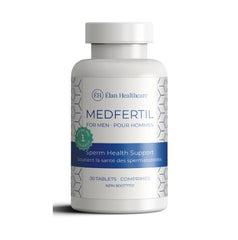
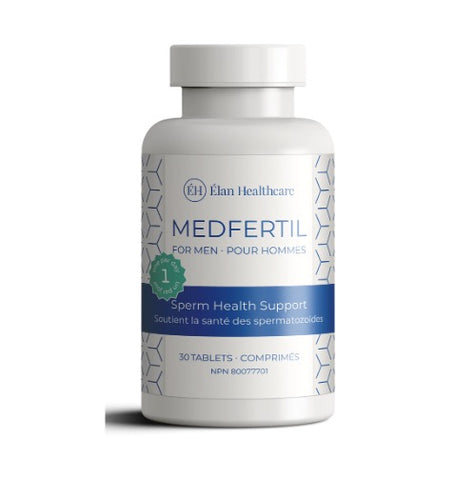
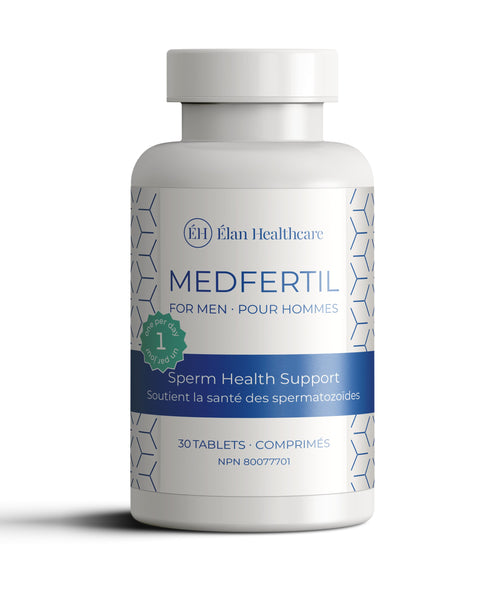
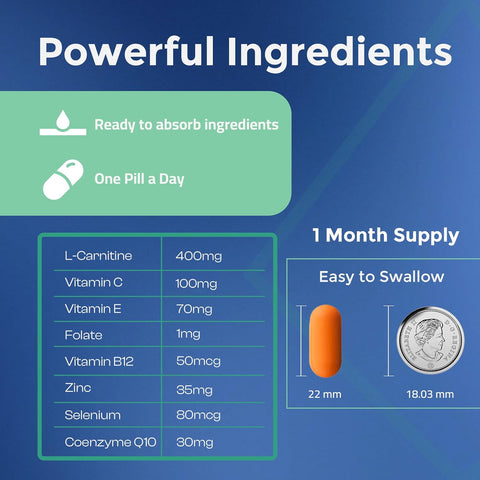
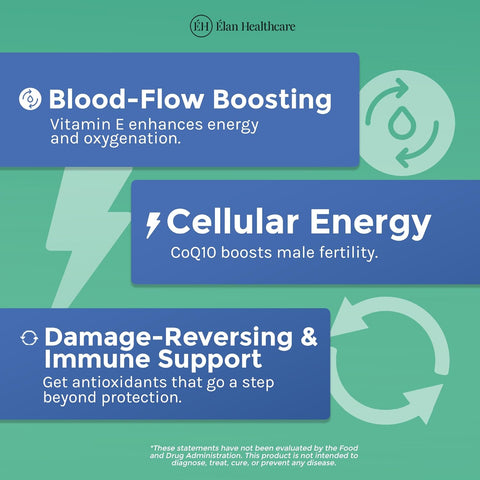
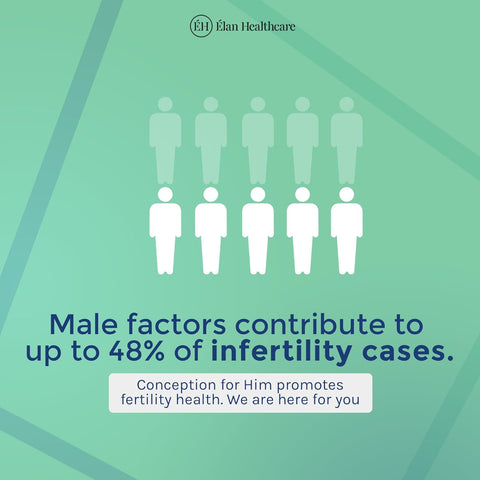


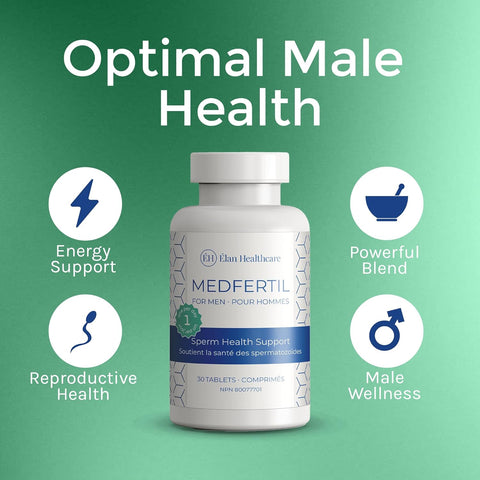








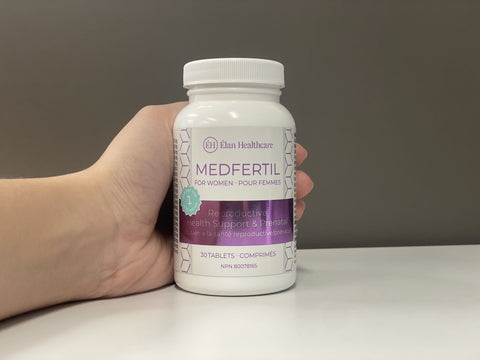

No comments yet.
There are no comments for this article. Be the first one to leave a message!
+ Open to leave a Comment